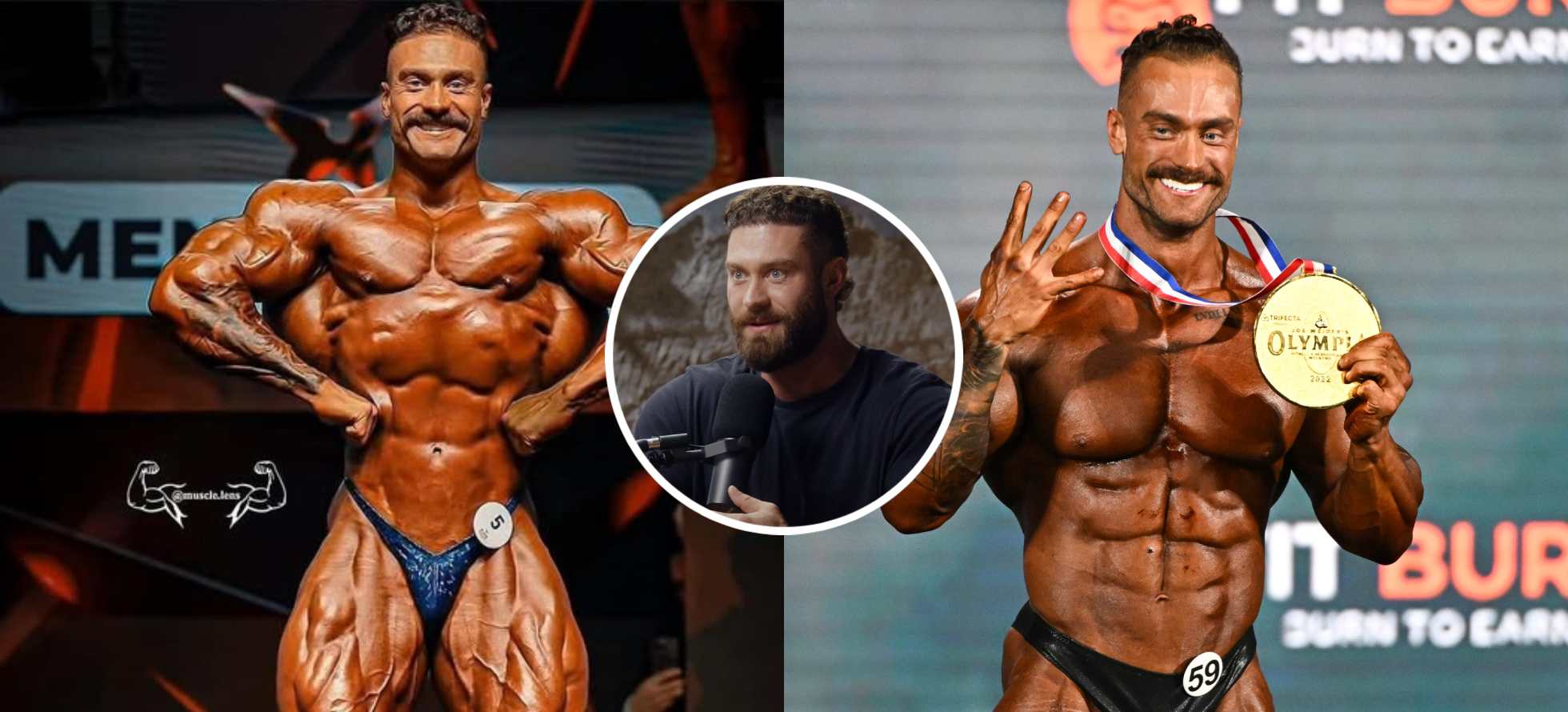Chris Bumstead, is a six-time Classic Physique Olympia champion who recently retired at the peak of his career. Recently, he opened up about the long-term health consequences of his bodybuilding journey, revealing he faces a lifetime commitment to TRT following years of PED use.
In a discussion about life after competition, the 30-year-old Canadian admitted that his decade-long pursuit of bodybuilding excellence has left permanent marks on his physiology. “Still on TRT because once you run that kind of stuff you kind of need to,” Bumstead explained, addressing the reality that many elite bodybuilders face but rarely discuss publicly. “It means you may have to take it for the rest of your life. It’s reality, you know.”
The admission sheds light on one of bodybuilding’s most controversial aspects – the long-term health implications of PED use. Bumstead, who built his reputation on being more conservative with su**tances compared to many competitors, emphasized the dangers of starting such protocols at a young age.
“I like people to be aware of the fact that putting an exogenous hormone in your body stops your body’s natural production of it,” he warned, highlighting the permanent nature of these decisions.
Throughout his career, Bumstead maintained a philosophy of achieving maximum results with minimal PED use, a approach that may have protected him from more severe health complications. Working with various doctors post-retirement, he’s been told he’s “actually healthier than I thought you would be given what you’ve done to your body.” This assessment came as a relief to someone who had already been dealing with autoimmune issues unrelated to bodybuilding.
The transition off higher doses of PEDs hasn’t been straightforward. Bumstead explained the gradual approach recommended by medical professionals: “If you drop it too hard after being so high for so long that it’s really bad on your body and your mind. You know, people go through some intense people go through depression from natural low test versus like having insane to just dropping it down.”
Currently, Bumstead is still evaluating his long-term hormone strategy, weighing the option of attempting to restore natural production against the simplicity of maintaining therapeutic doses.
His health journey extends beyond hormones. Post-retirement, Bumstead has discovered multiple gut health issues including SIBO, mold exposure, leaky gut, and heavy metal accumulation – complications he attributes partly to the demanding nutritional requirements of competitive bodybuilding.
“Bodybuilders eat constantly,” he noted, explaining how the sport’s dietary demands can compromise digestive health over time.
Despite these challenges, Bumstead expresses gratitude for retiring when he did. At 30, his body retains better recovery capacity than it would have in his late thirties, and medical professionals have indicated that addressing these health issues is more manageable at his current age.


